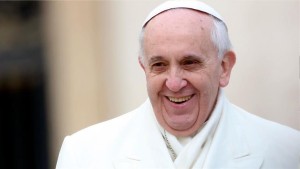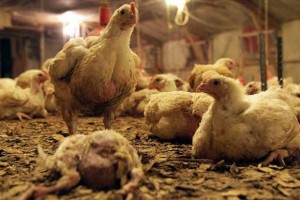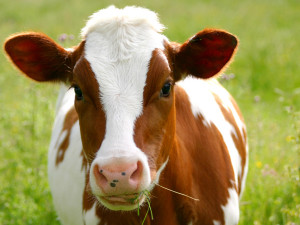 Dr. Richard D, Ryder, Cambridge educated psychologist, philosopher and Scientific Adviser to Catholic Concern for Animals argues humanity suffers from an addiction to animal cruelty. Nonetheless, religious leaders are leading the way in bringing about lasting change.
Dr. Richard D, Ryder, Cambridge educated psychologist, philosopher and Scientific Adviser to Catholic Concern for Animals argues humanity suffers from an addiction to animal cruelty. Nonetheless, religious leaders are leading the way in bringing about lasting change.
What a time it is! It is a time of revolution: a time of extraordinary change.
Recently we had Bishop Desmond Tutu in South Africa telling us:-
‘We should not overlook the issue of justice to animals…Churches should lead the way by making clear that all cruelty ─ to other animals as well as human beings ─ is an affront to civilised living and a sin before God’.
 Then we had the Dalai Llama saying:-
Then we had the Dalai Llama saying:-
‘In Buddhism the highest spiritual ideal is to cultivate compassion for all sentient beings and to work for their welfare to the greatest possible extent’.
And, most wonderfully, we had Pope Francis’ brilliant Encyclical Letter Laudato Si’. This letter tells Catholics everywhere to change their attitude towards animals. The Pope wants no more tyrannical anthropocentrism. No more putting of human interests way above those of the other animals. As Pope Francis says:-
‘The Bible has no place for a tyrannical anthropocentrism unconcerned for other creatures’.
So these three great men have all spoken out this year: Desmond Tutu, the Dalai Llama and Pope Francis. They have all spoken out in support of non-humans. Such statements 20 years ago ─ or even 10 years ago ─ would have been unthinkable. They amount to a gentle revolution ─ a worldwide but gentle turning of the tide.
On the other hand, of course, the situation remains dire. Millions of animals are still suffering in painful experiments ─ perhaps 100 million around the world each year. Millions of animals are still suffering in factory farms and in being transported alive across oceans and continents. Millions are being abused in slaughter houses. Millions of wild animals, too, are being trapped for their fur ─ often dying with broken legs in steel-toothed traps after days of agony. Millions are dying in other ways, poisoned or shot with bows and arrows for sport.
 It is not enough to just wring our hands about all this cruelty that goes on in the world today ─ we need to try to stop it, and to do so ethically and, of course, non-violently.
It is not enough to just wring our hands about all this cruelty that goes on in the world today ─ we need to try to stop it, and to do so ethically and, of course, non-violently.
Inspired by Pope Francis’ wonderful encyclical Laudato Si’ we must try to stop all forms of tyrannical anthropocentrism, whether it is cruelty in animal experiments, in slaughter houses, in unnatural farms, in the constant overproduction of pets in this country, in foxhunting or in the shooting and slow killing of half-tame lions by American dentists.
Campaigning
We are all agreed that all these things are wrong. They entail the causing of pain to nonhuman animals by human animals. As someone else has said ─ Cruelty is surely the greatest sin.
So, how do we stop it?
When I look back, certain techniques stand out as having been successful in the past.
The first is PUBLICITY.
 The majority of human beings around the world hate cruelty to animals, the young in particular. Give them pictures of cruelty and they want to stop it.
The majority of human beings around the world hate cruelty to animals, the young in particular. Give them pictures of cruelty and they want to stop it.
So our first rule is to tweet, televise, facebook and email. Generate publicity of all sorts. Television, radio, letters ─ everything. Target certain cruelties and publicisethem! Publicise them! Publicise them! ─ to the media and to other people generally. Write to your MP!
The second step is to work out what can be done to stop these cruelties once they have been publicised. We must have clear aims. It’s no use just saying ‘stop it!’ We want to say what law needs to be changed or what rule enforced or what other changes made.
So the second step is CLEAR AIMS.
Once a cruelty has been publicised and once we know precisely what we want to do about it, what comes next?
Third, is to generate as much PUBLIC SUPPORT as possible. Build this up. Enlist the support of celebrities. Get public opinion on your side. Ask people to sign petitions, and get their names and addresses. You will need their support later.
So what do you do with their support once you have it? The answer is that you try to focus it onto the decision-makers.
So the fourth step is to rouse PUBLIC OPINION through publicity and then to focus it on those who can really make a difference ─ like Prime Ministers, Popes and Presidents! Also the Chief Executives and Chairmen of supermarkets, big companies and QUANGOs. Also, of course, editors and producers of radio and television programmes. Write to them! Meet them! Everyone in this room can do this. We can all write or email our MPs and Prime Ministers once a month, or once a year at least. Please do this. Very short letters are enough.
Personal Journey
I have spent 45 years as a campaigner for animal protection; working as a trustee of the RSPCA; as an employee of IFAW and on my own. Otter hunting, cosmetics testing, live exports, battery cages, farrowing crates, veal calves, fur farming, seal clubbing, elephant killing, foxhunting have all been my targets.
It is often said that the way to campaign is to ‘talk quietly and carry a big stick’. This is metaphorical. The big stick means we have to use bad publicity against abusers and threaten to use more bad publicity against them if they don’t reform. You have sometimes to shame people into reforms.
There are, in fact, about five types of evidence you may need to collect as a campaigner and present to the media and to those who can put matters right.
 The first is evidence of the actual cruelty you seek to stop. Photographs or videos of cruel experiments, or of animals being abused in farms or slaughter houses, circuses or traps, or whatever it is.
The first is evidence of the actual cruelty you seek to stop. Photographs or videos of cruel experiments, or of animals being abused in farms or slaughter houses, circuses or traps, or whatever it is.
The second sort of evidence is scientific evidence, or veterinary evidence, confirming that this is cruelty and perhaps, recommending humane alternatives.
Third is evidence of widespread public opinion against this cruelty. You may need public opinion polls for this, to demonstrate to politicians, for example, how many votes may be attached to reforms.
Fourth, you may need good legal arguments to back you up.
Fifthly, sometimes you also need a good economist to point out the economic and commercial reasons for humane alternatives.
So, now you can bombard the politicians with all this evidence!
You need to make it easy for the people of power to bring in changes. Threaten them politely with bad publicity if they refuse to help, but thank them and praise them when they do!
Speciesism and Anthropocentrism
It helps if you believe you are in the right. We do. I believe there is ample evidence that animals can suffer pain and distress. They have the same sort of nervous systems as we do and the same sorts of brain chemicals associated with the experiences of pain and distress. There is now ample scientific evidence to support this. We are just one species of animal among hundreds of species who can suffer pain and distress.
Yet the absurd discrimination against nonhumans continues. I have called it speciesism. Speciesism is like racism and sexism. It is cruel and irrational. It is pre-Darwinian and out of date. Speciesism is selfish and unintelligent. Yet it continues all around us! If speciesism is not morally wrong then neither are sexism or racism!
We now have the Pope’s wonderful encyclical, Laudato Si’. In this, Pope Francis repeatedly attacks the world’s ‘anthropocentrism’ ─ the way in which people put the human species on a pedestal at the centre of the universe ─ as if all other of God’s creatures were of little importance. Such anthropocentrism, says Pope Francis, is distorted, excessive, misguided and tyrannical. Yes, he uses these actual words. He is attacking speciesism although he calls it anthropocentrism ─ an older and probably better word for it.
For the last 700 years this excessive and misguided anthropocentrism has been on the up and up in European and other cultures. Now, when the commercial and scientific abuse of nonhumans is at its maximum, people of intelligence and understanding are calling it into question. Perhaps the turning point was 200 years ago with writers such as Alexander Pope, Voltaire, Dr Samuel Johnson and Jeremy Bentham in this country.
More recently, in the 1970s, we had the modern philosophers of the Oxford Group spreading the attack on speciesism. In the 19th century there were Cardinal Newman and Cardinal Manning, Henry Salt and Frances Cobbe, all attacking cruelty to animals.
But, in the old days, many Saints were also opposed to such anthropocentrism. Before the year 1300 it was common for the Saints to be animal protectors. They were often very fond of animals, making friends with them and rescuing them from hunters.
 Take, for example, St Jerome who took a thorn out of the paw of a lion, St Columba who cared for a crane, St Walaric who caressed the woodland birds, St Neot, St Godric, St Aventine, St Carileff, St Monacella, St Isidore and St Anselm who are all recorded as rescuing animals from hunters. St Cuthbert, too, made friends with birds. Being kind to animals was part of the usual trademark of sainthood. As early as the fourth century St John of Chrysostom had urged kindness to animals because ‘they are of the same origin as ourselves’ and St Basil of Caesaria had urged a ‘sense of fellowship with all living things’.
Take, for example, St Jerome who took a thorn out of the paw of a lion, St Columba who cared for a crane, St Walaric who caressed the woodland birds, St Neot, St Godric, St Aventine, St Carileff, St Monacella, St Isidore and St Anselm who are all recorded as rescuing animals from hunters. St Cuthbert, too, made friends with birds. Being kind to animals was part of the usual trademark of sainthood. As early as the fourth century St John of Chrysostom had urged kindness to animals because ‘they are of the same origin as ourselves’ and St Basil of Caesaria had urged a ‘sense of fellowship with all living things’.
Yet after the time of St Francis, who died in 1226, things got a lot worse for the animals. Much of the earlier kindness was suppressed.
It was the same with slavery wasn’t it? Self-interest blinded us to this injustice for hundreds of years. Animal cruelty is today’s slavery. We all need to wake up! Women, too, were oppressed for centuries ─ out of the self-interest of men.
As Desmond Tutu has recently said ─ ‘religious traditions do not, by and large, have a good record on animals’. For some 700 years after St Francis, sadly, that has been true. Now, with Pope Francis, we have an opportunity to make some more progress. Armed with his words we can approach the politicians who can change things, lobbying Catholics in particular all over the world and persuading the United Nations to recognise the rights of all animals. We seek a world without bloodsports, where all slaughterhouses have CCTV cameras, where animals are not transported over huge distances, where the most severe forms of painful experiments are totally banned and where meat-eating is a rarity.
Meat Addiction
Why have the Churches made so little progress over recent centuries? Why have they ignored the whole issue of cruelty to our brothers and sisters of other species?
 The main answer is probably MEAT. The human species has seemingly become addicted to meat. Billions of human beings are addicted to meat and they can’t give it up. Either it is an innate drive to eat meat ─ a drive like thirst or sex or sleep, or it is an unnecessarily acquired addiction ─ a chemical dependence on meat like an addiction to cocaine, heroin, alcohol or tobacco. We simply don’t know which it is. Science has strangely ignored the issue. Why has nobody researched this properly?
The main answer is probably MEAT. The human species has seemingly become addicted to meat. Billions of human beings are addicted to meat and they can’t give it up. Either it is an innate drive to eat meat ─ a drive like thirst or sex or sleep, or it is an unnecessarily acquired addiction ─ a chemical dependence on meat like an addiction to cocaine, heroin, alcohol or tobacco. We simply don’t know which it is. Science has strangely ignored the issue. Why has nobody researched this properly?
More and more people in the UK are becoming vegetarians or vegans but most of them appear never to have been addicted to meat. For thousands of the others ─ the carnivores ─ the majority in the Western world ─ it is like asking millions of drug addicts to give up their drugs! It is easier said than done! This is probably why the liberation of our fellow animals has never been achieved. This glaring moral issue has been blocked time and time again by the meat addicts. This is typical of addiction. If you try to come between an addict and his ‘fix’ ─ addicts can become very difficult.
It is not enough to say the carnivores eat meat because they ‘like’ it. It may be more insidious than this. It is not sufficient for a drug addict to say he only takes his drug because he ‘likes’ it. Liking something can be part of an addiction.
We at least know something about meat nowadays. Science tells us we can live very well without it. Indeed, we now know that meat, like cocaine, is often bad for us ─ increasing the risks of cancer, blood pressure and heart disease. The economics are crazy too. We are destroying forests in order to produce meat, at far greater cost than we could produce more than enough vegetable protein. Why does the majority cling to its meat diet? Why is the majority so afraid of a world where animals of all species ─ nonhuman as well as human ─ can enjoy equal rights?
So, is the Churches’ failure to grasp the issue of animal cruelty just because of this self-interest, of meat addiction?
As a psychologist I have had some experience of dealing with addiction, with young people unable to stop taking heroin or cocaine. The addicts produce all sorts of excuses just as meat-eaters do. There are some striking psychological similarities between addiction and meat-eating.
Addiction today is usually called substance use disorder. Often such substances are psychoactive ─ they stimulate and satisfy the reward mechanisms in the brain such as the nucleus accumbens. There is a craving, often strong and overpowering, to take the substance on a periodic or continuous basis, even when that substance is harmful to physical health ─ as cocaine, meat, tobacco, alcohol and heroin all are. Withdrawal may produce physical and psychological symptoms such as irritability, explosive demands for the substance, angry resistance against any attempt to prevent access to the substance, or to speak against it, as well as feelings of anxiety, depression and agitation. Is meat addiction one of the unrecognised causes of anxiety and depression in our society?
In addictions, physical and psychological symptoms of dependence and withdrawal can occur ─ tremors, sweating, nausea, exhaustion, feeling generally unwell. Those who are already psychologically disturbed with anxiety, depression or incipient psychosis can be especially vulnerable to addiction. The consumption of alcohol or nicotine or, possibly, MEAT becomes a way of reducing these uncomfortable feelings. But in the long run, of course, it doesn’t work. Often, it only makes things worse.
As far as I know, few people have really researched the possibility that meat contains chemicals that are addictive in the strictly medical sense. Maybe there are a score of such possible chemicals in meat which need to be analysed. One question is this: are any of them opioids, cannabinoids or stimulants, or other substances already known to be addictive? We already know there is Hypoxanthine, which is a stimulant. Such substances can interact with the chemicals already in the body, such as brain transmitters ─ for example serotonin and dopamine.
I am only making the suggestion that meat may be an addictive substance at least for some people. Research needs to be done and it will, of course, be opposed by the mighty meat industry.
We have to explain why, when all the evidence is that many other species ought to be in the same moral community as ourselves, that nonhuman animals are still excluded ─ against all the overwhelming rational and scientific evidence. Why? Charles Darwin told us that we are all animals. These are our relatives. We are related through kinship. Modern science tells us that all animals suffer pain and distress. We are all in the same moral ark! So why exclude them?
It has to be a reason that is both irrational and overwhelming ─ and these happen to be two of the hallmarks of addiction: irrationality and overwhelming compunction. The signs and symptoms of addiction include not only craving and unstoppability, but spending more than is prudent on the addictive substance, excessive consumption of the substance, and, above all, denial of the problem. I have known quite a few meat-eaters like this!
Maybe they have become dependent on meat in order to cope with their lives. Yet the more they eat, the more they want. When they don’t eat meat they become irritable and moody.
Even if we argue that we are innately programmed to eat meat this is no justification. Under certain situations it may be natural for some people to kill or rape. This does not morally justify rape or murder!
Meat eating is not necessary. Indeed, it is harmful.
Isn’t it strange that parents around the world force their children to eat meat? Why do they do it? They don’t force their children to eat opium or amphetamines! Yet this almost universal practice of forcing children to become meat-eaters seems to be associated with one or two wrong ideas: the first is that meat is good for their children, when it isn’t! The second is that meat is the only source of protein, which it isn’t! Thirdly that meat is a manly thing, and finally that meat is a sign of opulence and success. These ideas are all irrational or outdated or primitive or simply wrong.
Like a lot of children I was fed meat daily by my parents and, by the age of eight, hardly surprisingly, I was behaving as if I was addicted to it. I craved meat intensely.
All I am saying is that we need to find out if meat eating is really an addiction forsome people, like an addiction to cocaine. If so, society may begin to change its attitude towards animals and their moral status.
At school, this addiction process continued with meat and two veg, meat and two veg, meat and two veg ─ day after day, and year after year. Society was surely making a determined effort to ensure that I would forever be a meat addict, which is what I suppose I am today. Drinking or not, once an alcoholic, always an alcoholic. Once a carnivore, always a carnivore. At least for those of us who are chemically vulnerable.
If 90 per cent of Western populations are addicted to meat and progressively more of the rest of the world, too, what hope is there for our relations ─ the other animals?
I suspect that for thousands of years some men have become addicted to meat and have for this reason, fiercely and irrationally defended their right to kill and eat animals. All the arguments of mercy and rationality have been in vain. Angrily, full of telltale guilt and contempt, the addicted carnivores have fought off such challenges. They have produced rationalisations, wrong facts and irrational arguments to do so, just as addicts always do.
Many of the religious orders of Christian and other countries have taught vegetarianism but, in the end, they have forgotten them. Armed with the fanaticism and the extremism of addiction, the meat-eaters have prevailed.
I suspect that only something as powerful as full psychological addiction can explain all this.
I dare say I will not be heard, but I call upon my fellow scientists to research this issue. Why is it that so many people crave this medically dangerous substance called meat? Let’s research also, in greater detail, the medical dangers of meat.
I suspect that, going back thousands of years to the Stone Age, there were probably actual battles between meat eaters and vegetarians ─ between the addicts and the ethicists. I also suspect that this, ultimately, is why the true moral position of the other animals has never been fully accepted. It threatens a widespread addiction.
Pope Francis concludes his remarkable letter with the following prayer:-
Father, we praise you with all your creatures. They came forth from your all-powerful hand; they are yours, filled with your presence and your tender love…
God of love, show us our place in this world as channels of your love for all the creatures of this earth, for not one of them is forgotten in your sight…
This article is published with the kind permission of Catholic Concern for Animals and was originally published in The Ark Magazine www.catholic-animals.com




